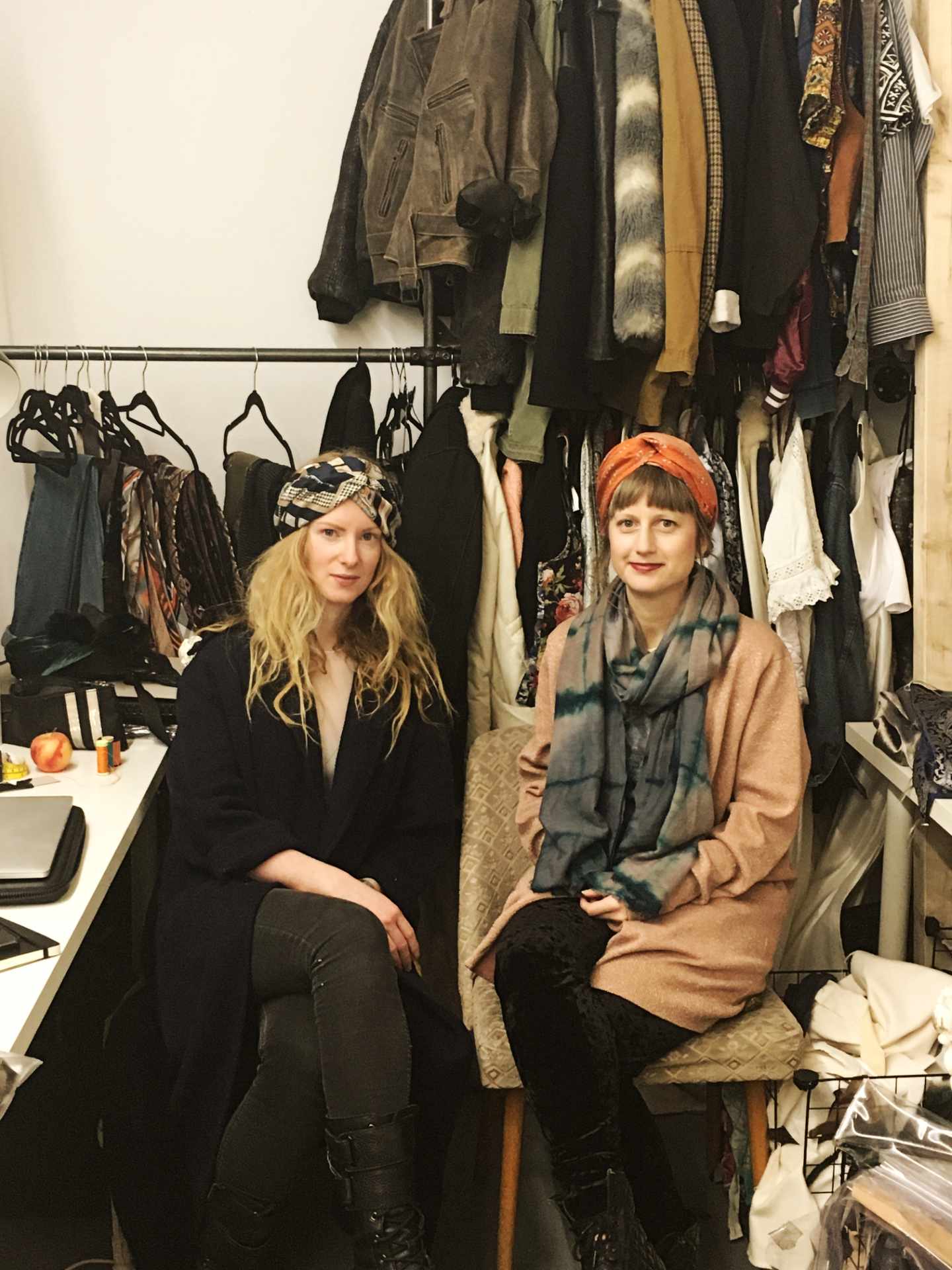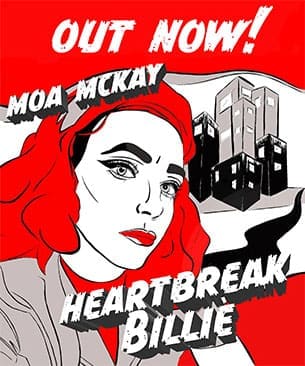 indieBerlin sat with Ruth and Caroline, the creators of a revolutionary brand and philosophy called 22 Threads.
indieBerlin sat with Ruth and Caroline, the creators of a revolutionary brand and philosophy called 22 Threads.
They talked us through their uplifting love story with fashion and their experience in the fast fashion industry which led to the creation of their sustainable and benevolent creative project. 22 Threads strives for the use of fashion as a positive and feasible force. Indeed, Ruth and Caroline both fight for the better good through their personal and professional passion: fashion. Caroline through innovative research and Ruth through the creation of sensible and leading-edge costumes.
They describe themselves thus: “Our purpose is; to collectively create a non-conventional production cycle for a new system, use high-end design and garment manufacture to value beauty and preciousness in textiles, artisanal and crafted approaches to textile construction, the revival of making practices, centred around mindful wearing. We are dedicated to experimenting, inhabiting the creative spaces beyond boundaries of design, art, science, technology, culture and nature.”
Their project is indeed a necessary and brave initiative as at this stage, the world’s consumption habits having spiraled into a crisis situation across the globe. Rivers in India are being colored from the run-off of textile factories. The catastrophic textile factory collapse (Rana Plaza disaster), was just one of many incidents caused by the terrible working conditions of textile factory employees. The collapse of the Rana Plaza happened in Bangladesh in 2013 and killed 1,135 low-paid employees who were mainly women and injured 2,500. Fast fashion is also, in a an alarming way, participating to global warming. ‘Slow fashion’ alternatives are therefore urgently needed in order to slow the relentless fast fashion machine.
An inspirational path
Caroline and Ruth told the story of their different and unique career paths and how they succeeded in transforming their passion 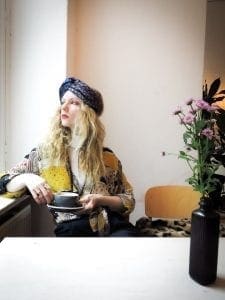 into professional success.
into professional success.
Caroline: What drew me to fashion was probably my grandmother. She had a very old small box full of threads and pearls and I used to love looking at it and going through it. That’s when I knew I wanted to work with textiles and fashion. After that I always liked making dresses and printed fabrics. I studied fashion and style design. Then I worked for retailers like H&M and WGSM. Right now I’ve been in the fashion industry for more than 20 years and working in fast fashion made me realize I wanted to work in wearable technology, experiment with it and research it too. What I‘m experimenting with is using wireless technologies and using technologies to make robotic moving textiles.
Ruth: Since I was little I’ve always wanted to work in fashion. I used to be obsessed with fashion shows on TV. That’s why I decided to study fashion design in the UK and moved to London to work for two and a half years for various fashion brands. After that I got tired of London and left for Dubai. And now I’m in Berlin. When I arrived I worked at Zalando, that’s how Caroline and I met.
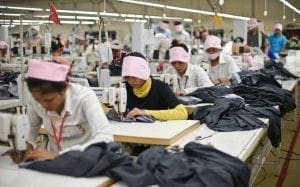 The worrying impact of the fast fashion industry
The worrying impact of the fast fashion industry
Working in fast-fashion was, for both Caroline and Ruth, a true wake-up call. Indeed, it’s their experience in this industry that led them to push for a more sustainable and sensibility-driven fashion project.
Ruth: I got really tired with the fashion world. Especially working in fast fashion, it’s an environment in which everything has to move very quickly, you don’t have time to develop any concept or any idea. That’s why I decided to study costume design.
Ruth’s costume design is, in her own words, fashionable. There is however a striking difference between fashion and costume design. In costume, the garment created has to be performative, it has to look good on stage and it also has to tell a story, the one of the play and of the character that wears the piece. Ruth recently worked for the Siciliano Contemporary Ballet’s new act entitled The Gift. The diversity and richness of her resume is impressive as she also worked for operas in Berlin and engaged feminist plays back in London.
Caroline, in her rich career, also experienced the damage of the fast fashion industry
Caroline: It got to a point where things were being made very fast, for a very cheap price and with very little quality. Every brand was constantly trying to lower their prices and at the same time, I was able to see the people at the bottom of the firm who were working very hard and not being paid much. It’s an incredibly wasteful industry knowing that 3 out of 4 pieces of clothing are thrown away (Today, 85% of our old clothes end up in a landfill. In North America for example, that equates to about 25 billion tons per year of textile waste). When I was working at H&M especially, there were 5 million pieces made from a single dress.
I got very tired working so fast and so hard and I decided that I wanted to work on a project where I could take my time to create something better both in terms of quality and meaning. I wanted to rethink what fashion could be. I was also pursuing the idea of sustainability and wanted to create fashion that was economically and environmentally positive. Something that is particularly missing in the fast fashion industry is quality. That’s also why I started my phd in research. I wanted to preserve and foster knowledge and quality.
A hope for change
As Caroline is continuing her fascinating phd research and Ruth creating visionary costumes for plays and operas, both are 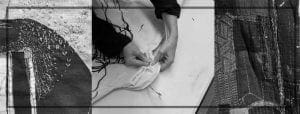 working on 22 Threads, an ambitious project and a real hope for change. They share a vision and a will to create a community in order to raise awareness of sustainability.
working on 22 Threads, an ambitious project and a real hope for change. They share a vision and a will to create a community in order to raise awareness of sustainability.
22 Threads is a fashion brand and a social and environmental engagement that finds its inspiration in the Wabi Sabi philosophy.
In traditional Japanese aesthetics, wabi-sabi (侘寂) is a world view, centered on the acceptance of transience and imperfection. The aesthetic is sometimes described as one of beauty that is « imperfect, impermanent, and incomplete ». 22 Threads’s aim is to teach people how to re-use their old clothes and give them a new life, meaning and depth through personalization and creativity. Their workshops inspire and teach people to use fashion as a positive and innovative force. While we live in a society in which consummation is a necessary component of our existence, Ruth and Caroline’s project pushes for a clever and respectful use of clothing and fashion. They use art to benefit the environment as well as people’s history and insight. As much as their passion can be felt in their amazing initiatives, they want people’s emotions and past to be projected onto garments they create.
Caroline: After working for over 20 years in the industry, I want people to know that it can be a really positive and social force. Fashion can be used for good causes despite all the negative opinions and all the negative aspects of it that are mostly portrayed in the media. We need to remember that we can create the drive for something very positive. It’s very symbolic and it can draw people together. That’s what we want to do with 22 Threads – we want to empower these values.
Ruth: Absolutely and fashion is a very mediate platform, it’s a reflection of our society as fashion designers react very quickly to what is happening politically and socially today. That’s why it is a very positive and ideal platform for change.
The fast fashion industry emits 1.2 billion tons of CO2 equivalent per year (5% of global emissions), is responsible for producing 20% of global wastewater that results in the contamination of rivers, oceans, freshwater sources, and soil (92 million tons of wastewater in 2015) and encourages dangerous work conditions, long-working hours and minimal pay.
Ruth and Caroline’s proposal is an intelligent, brave and beautiful project that pushes for fashion’s respect of the environment and for the reduction of compulsive and useless consumption. Motivated by eye-opening experiences in the fast fashion industry, 22 Threads is an unavoidable reaction to the environmental and human danger it represents. Through creation, awareness and education, Ruth and Caroline hope to make a change by putting their talent and knowledge at the service of change.
Their next workshop is just a week away, learn how to create a sustainable headband with beautiful vintage fabrics. Book your place now for an inspiring and fashionable moment.
Photo credit : Samer Muscati/ Human Rights Watch

